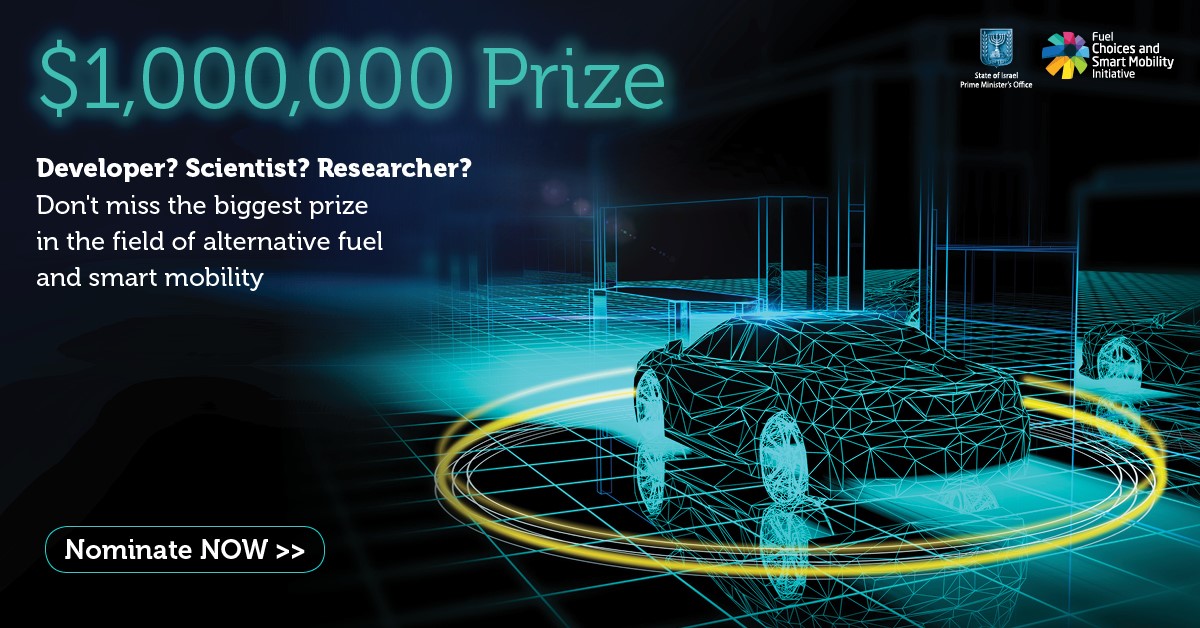The Eric and Sheila Samson Prize, totaling one million US dollars, is the world’s largest monetary prize awarded in the field of alternative fuels and smart mobility, and is awarded yearly to scientists who have made critical advancements towards achieving this goal. The Ministry of Science & Technology is leading, every year, the rigorous selection process of the winners. The winners are selected from a long list of worthy candidates recommended for the prize by university presidents and CEOs in industry, from Israel and from around the world. The winners are selected by a committee of international experts who submit their recommendation to a board of trustees.
